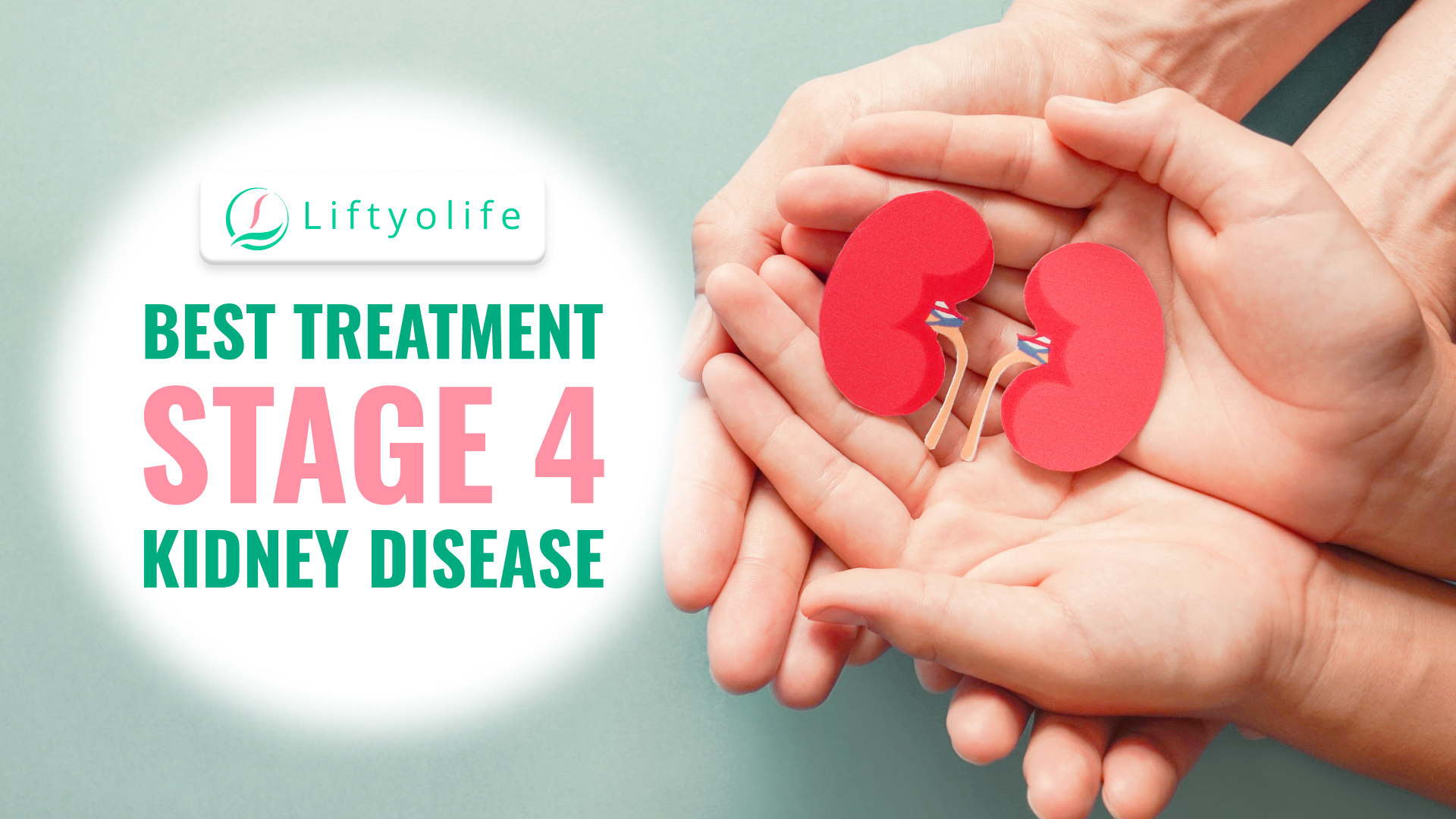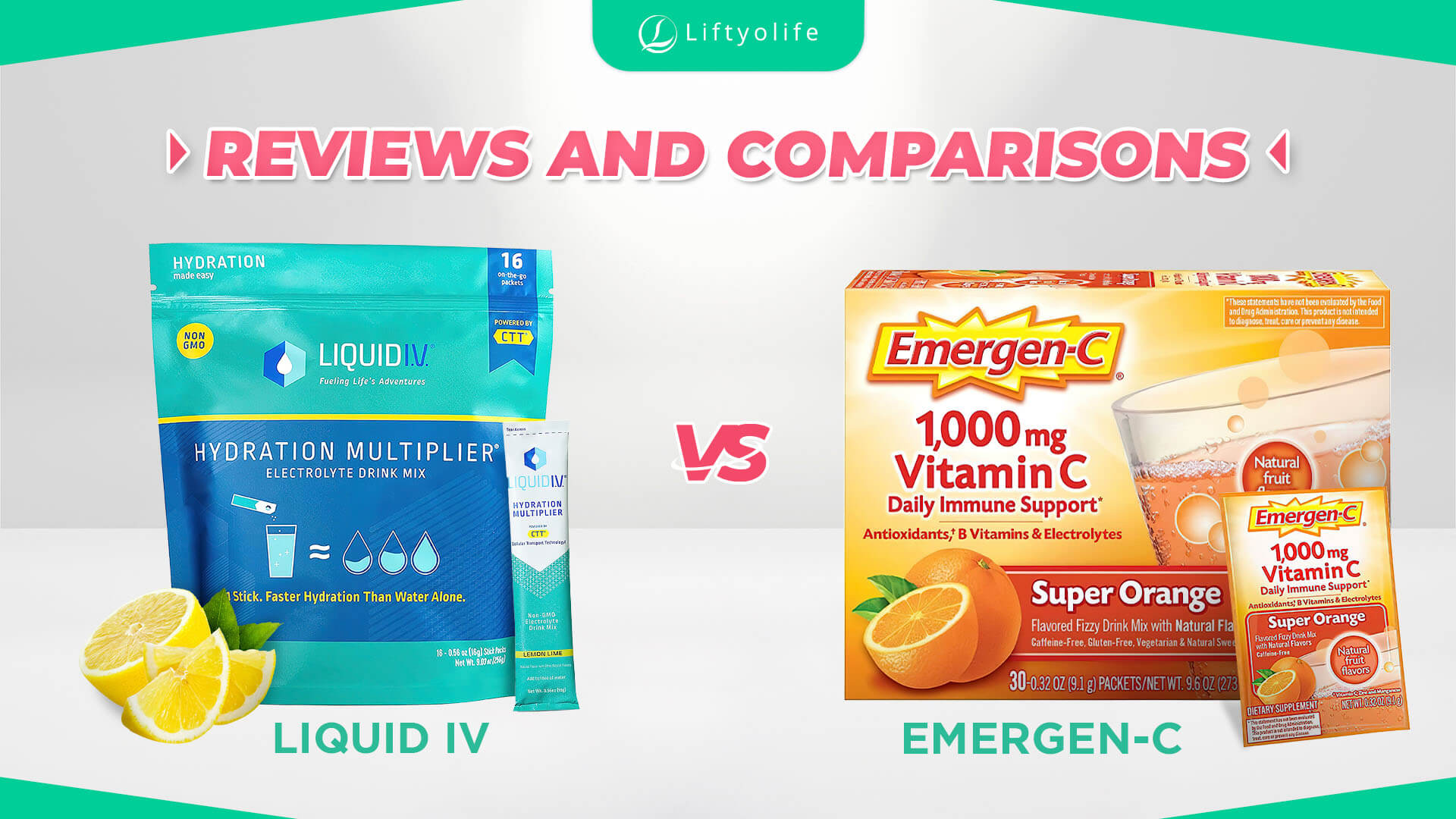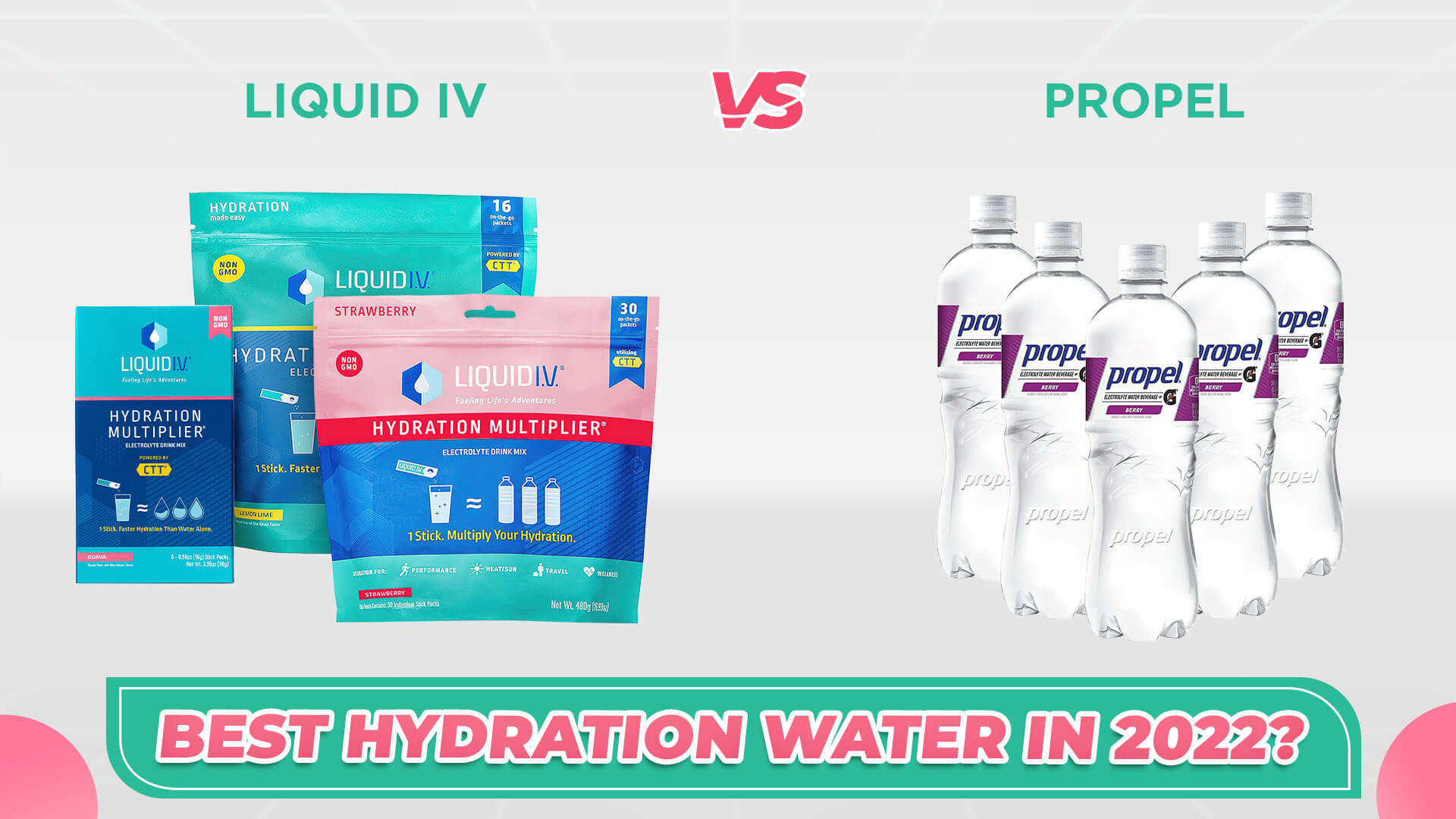Neurobehavioral Effects of Camp Lejeune Water: Update 2022
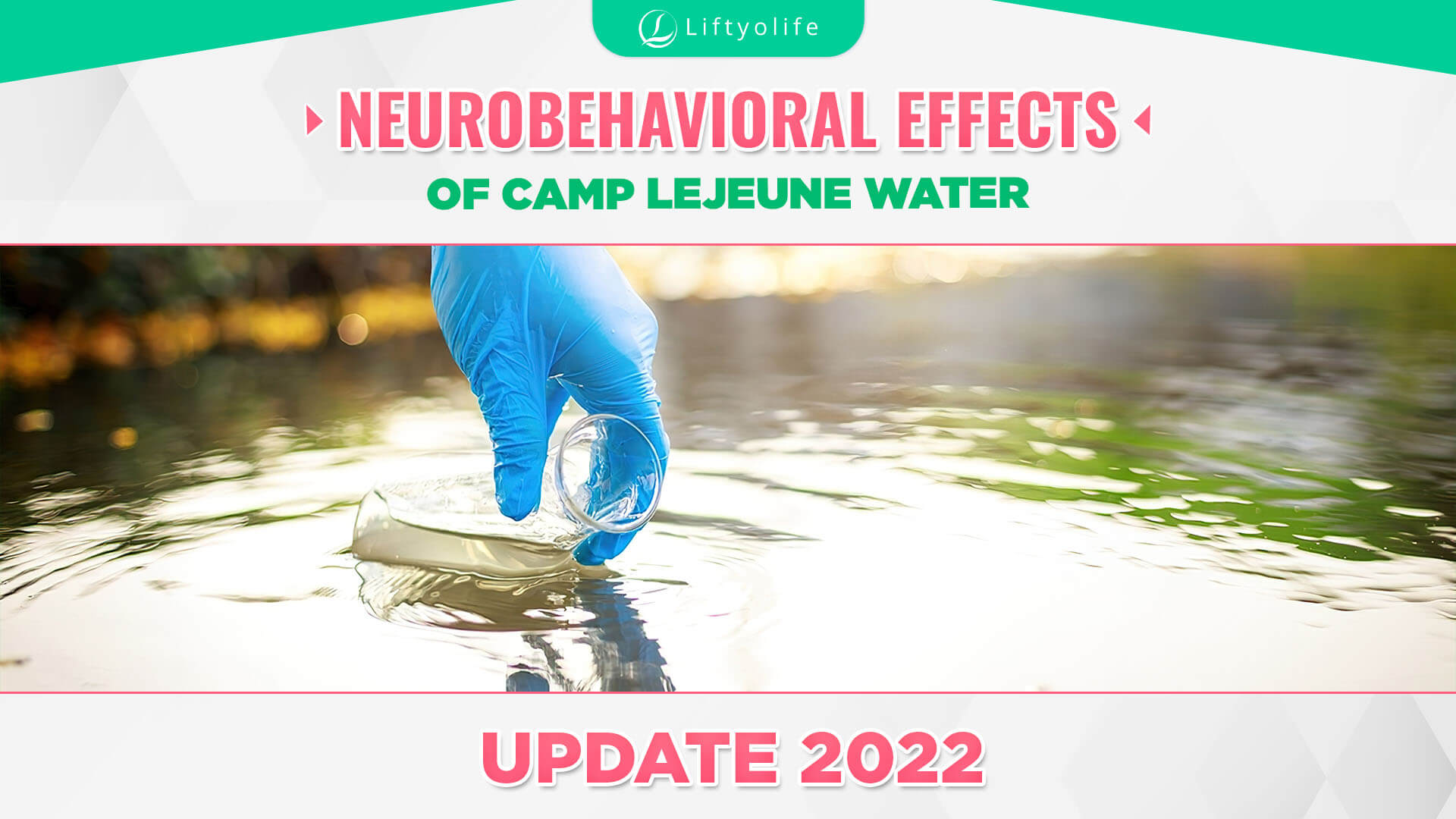
As a result of the toxic water at Camp Lejeune, thousands of people have been exposed to neurological disorders. What are the neurobehavioral effects of Camp Lejeune water? What are the signs and what can you do about it? Find out in this post with Liftyolife (liftyolife.com).
1. What Are Neurobehavioral Effects?
Neurobehavioral effects relate to exposure to harmful substances to the central nervous system. This can lead to neurological disorders, nerve damage, and brain cancer.
At Camp Lejeune, residents have been exposed to dangerous chemicals such as arsenic-based fuels and solvents. That’s why thousands of veterans and families have suffered adverse health for decades.
2. The Relationship Between Camp Lejeune Water and Neurobehavioral Effects
The link between Camp Lejeune water and neurobehavioral effects has been clear. That’s because scientists have found a level-out amount of these chemicals in the water. They are trichloroethylene (TCE), tetrachloroethylene (PCE), benzene, and vinyl chloride.
According to NRC (1), there are evidence-based associations between Camp Lejeune water and neurobehavioral effects. The toxic relationship is real because
- Attentional disorders, fatigue, headache, and motor function come from exposure to solvents;
- There’s a high chance of getting Parkinson’s disease and Alzheimer’s disease by exposure to TCE and PCE.
Let’s dive into detailed symptoms of the neurobehavioral effects of Camp Lejeune water.
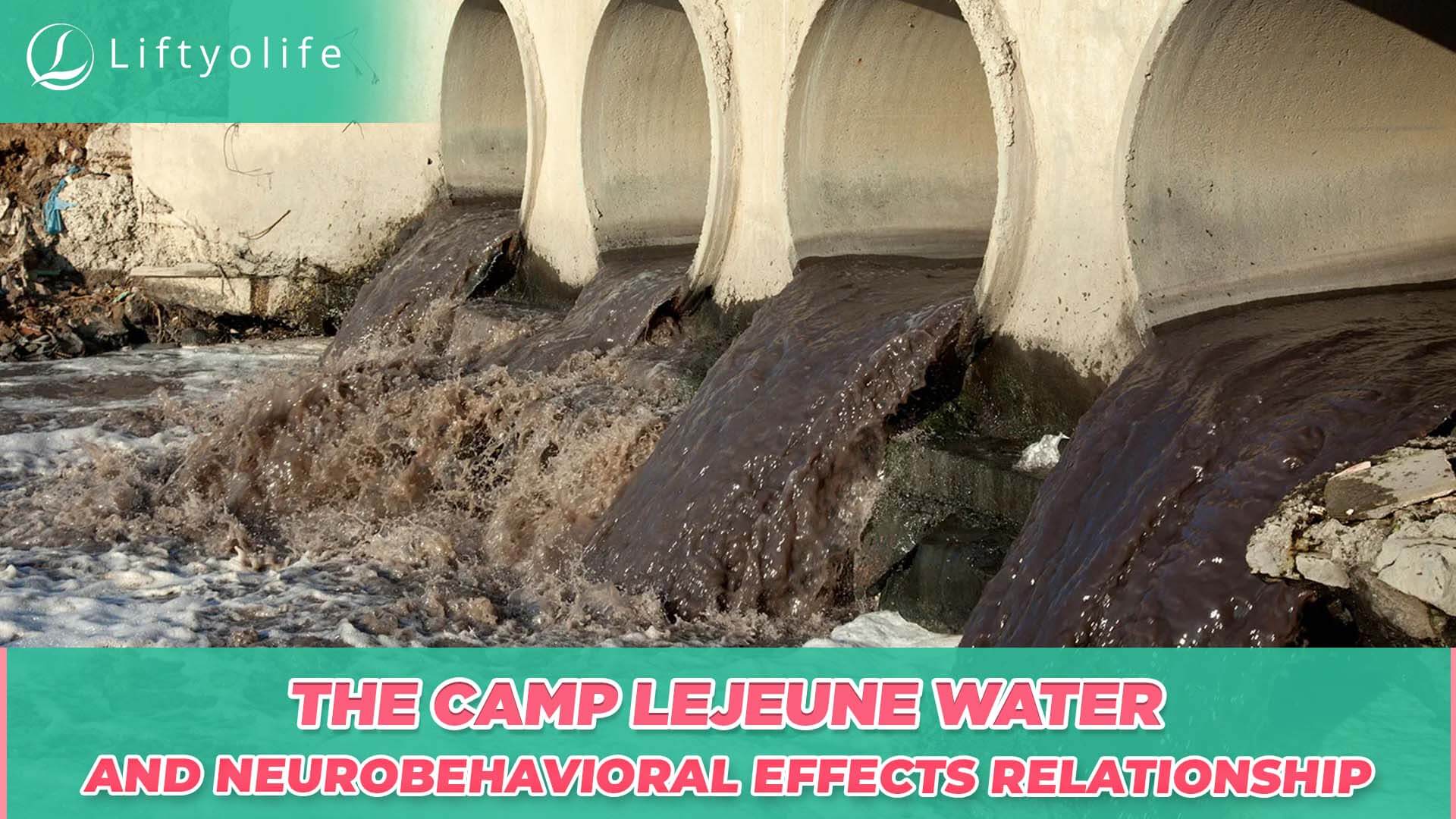
The Relationship Between Camp Lejeune Water and Neurobehavioral Effects
3. Camp LejeuneNeurobehavioral Effects Symptoms
Neurobehavioral effects describe the long-term consequences of exposure to toxic compounds. There are three radical types: neurotoxicity, neurologic dysfunction, and developmental disabilities. That means they affect the mind and include symptoms that disrupt brain functioning.
So, what are the symptoms of the Camp Lejeune water contamination? As reported by those affected and various studies, the symptoms of Camp Lejeune neurobehavioral effects could be:
- Tremors
- Anxiety
- Irritability
- Involuntary movements
- Learning disorders
- Sudden changes in mood, emotion, or personality
- Tension
- Dementia (Alzheimer’s disease)
- Confusion
- Attention deficit
- Headaches
- Motor disorders
- Depression
- Parkison’s disease
- Insomnia
Amongst them, attention deficit is the most common neurobehavioral disorder.
4. What to Do if You’re Affected by Camp Lejeune Water’s Neurobehavioral Effects
If you have been exposed to the contaminated water at Camp Lejeune and developed those symptoms, seek a doctor immediately.
But things are not limited to just seeing a doctor. For those affected by the Camp Lejeune water toxicity between the 1950s and 1980s, there are benefits to earn.
Read on to know what you deserve.
4.1. Veterans Affairs (VA) Compensation
VA provides compensation for many types of service-connected disabilities. They include exposure to toxic substances such as those found in the water at Camp Lejeune.
However, specific eligibility and evidence requirements are required to earn appropriate compensation.
Eligibility Requirements
- In the status of a veteran, reservist, or honorably-discharged National Guard member;
- Have served at Camp Lejeune for at least 30 days between August 1953 and December 1987;
- Affected by at least one of these presumptive conditions:
- Bladder Cancer
- Liver Cancer
- Kidney Cancer
- Adult Leukemia
- Parkinson’s disease
- Multiple myeloma
- Non-Hodgkin’s Lymphoma
- Aplastic Anemia
Evidence Requirements
- Officially diagnosed with one of the present diseases on the list of presumptive health effects;
- Any official documents or proof of service from Camp Lejune or the Marine Corps Air Station New River (North Caroline) between August 1953 and December 1987;
- Proof of being on active duty, a reservist, or a National Guard member.
4.2. Other Compensation
Good news! You don’t have to be a military member to receive compensation for suffering the neurobehavioral effects of Camp Lejeune water contamination.
Camp Lejeune’s contaminated water has impacted over a million children, adults, and families. So, you may be eligible for compensation if you lived on Marine Corps Base Camp Lejeune for at least 30 days. The period must fall between August 1953 and December 1987, while a family member was serving in the military.
To ensure that you qualify for that, seeking a reliable consultation is the best thing you can do!
Accordingly, My Injury Claim Center is here to help you assess your case related to Camp Lejeune. Their team of experts is standing by to get the justice you deserve!

My Injury Claim Center
How much is the compensation for Camp Lejeune water contamination?
The compensation provided to victims of Camp Lejeune water contamination can be up to $100,000 per person. It was reported that the person earning this amount has kidney cancer due to serving as a Marine veteran. And of course, he was at Camp Lejeune from 1953 to 1987.
Now Liftyolife (liftyolife.com) has shown you the neurobehavioral effects of Camp Lejeune water. The symptoms have been recognized so that victims know how to deal with them. But the one thing that could actually help Camp Lejeune victims would be a guarantee of monetary damages. Hopefully, VA will cover the medical issues for the maximum of those affected.
